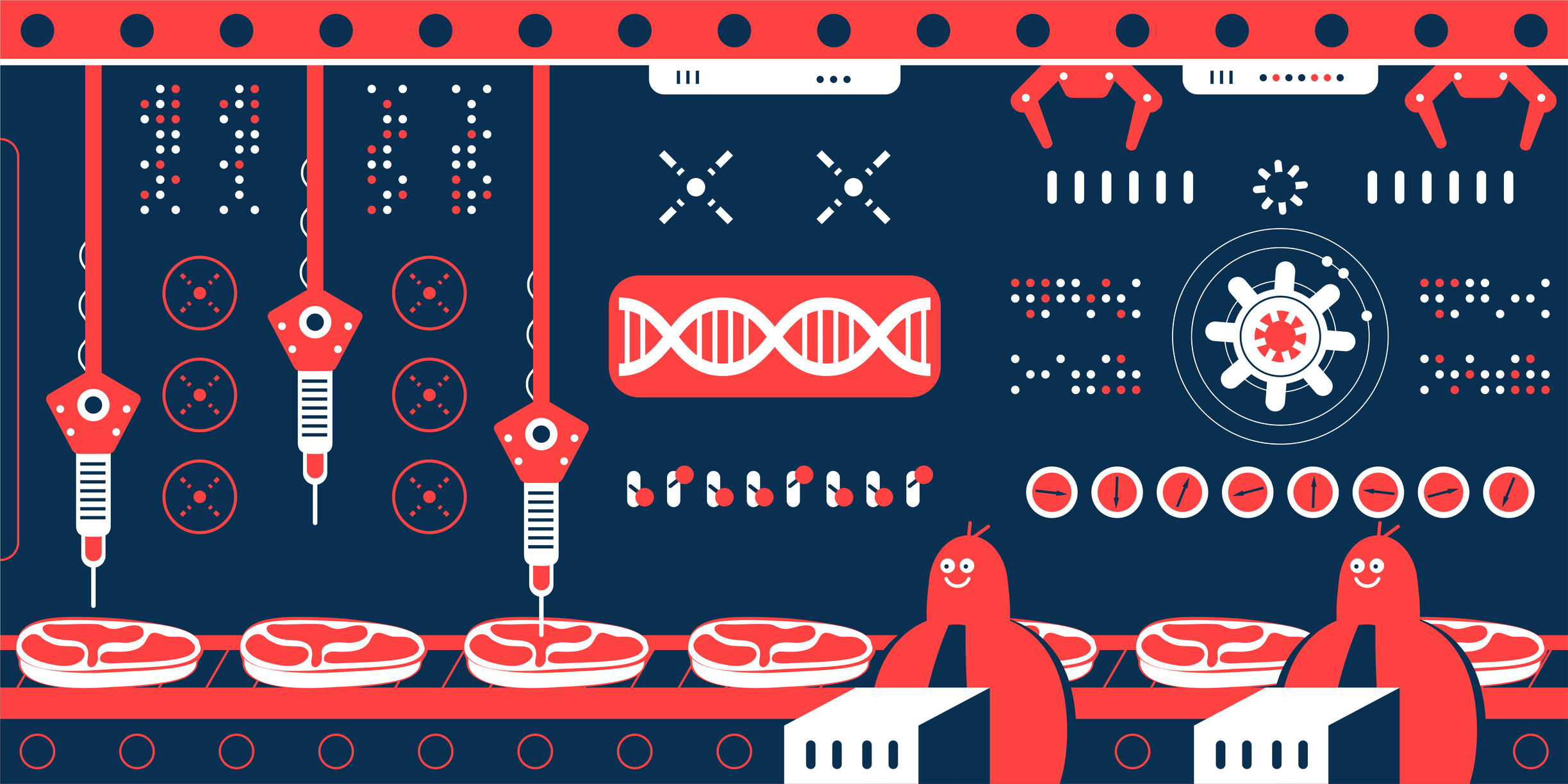Startups that produce lab-grown meat and meat substitutes are gaining traction and raising cash in global markets, mirroring a surge of support food tech companies are seeing in the United States.
New partnerships with global chains like McDonald’s in Hong Kong, the launch of test kitchens in Israel and new financing rounds for startups in Sydney and Singapore point to abounding opportunities in international markets for meat alternatives.
In Hong Kong, fresh off a $70 million round of funding, Green Monday Holdings’ OmniFoods business unit was tapped by McDonald’s to provide its spam substitute at locations across the city.
The limited-time menu items featuring OmniFoods’ pork alternatives show that the fast food chain remains willing to offer customers vegetarian and vegan sandwich options — so long as they live outside of the U.S. In its home market, McDonald’s has yet to make any real initiatives around bringing lab-grown meat or meat replacements to consumers.
Speaking of lab-grown meat, consumers in Tel Aviv will now be able to try chicken made from a lab at the new pop-up restaurant The Chicken, built in the old test kitchen of the lab-grown meat producer SuperMeat.
The upmarket restaurant doesn’t cost a thing: it’s free for customers who want to test the company’s blended chicken patties made with chicken meat cultivated from cells in a lab that are blended with soy, pea protein or whey, according to the company.
SuperMeat, which has raised capital from investors — including Stray Dog Capital, New Crop Capital and Starlight Ventures in the U.S., European investors like PHW Group, Blue Horizon, CPT Capital, BackBone Ventures, Seier Capital and Good Seed Ventures and Asia’s The Sirius Group — would not comment on how much its meat costs to produce, but said its products would be priced competitively with premium restaurant pricing. The company expects to bring its first commercial product to market within the next year-and-a-half to two years and will reach commercial scale at its manufacturing facilities in five years.

Image Credit: Getty Images
In Sydney, Australia, financial services and investment banking giant Goldman Sachs and Singaporean state-owned investment firm Temasek have joined a clutch of investors in a $55 million round for V2food, as Bloomberg news reported last month.
The funding sets up a showdown between V2food, Omnifood and brands like Nestlé, alongside the well-funded American meat substitute manufacturers like Beyond Meat and Impossible Foods, which both have a presence in Asia. Yum China Holdings, which operates Taco Bell, KFC and Pizza Hut franchises across mainland China signed a deal with Beyond Meat to sell the company’s products at their restaurant in June, as The Street reported over the summer.
Lab-grown meat companies in Asia are also making strides of their own. Shiok Meats, the lab-grown company focused on making shrimp meat, has landed $12.6 million in new funding to continue developing its product.
Planning to launch its first minced shrimp product in 2022, Shiok said it will use the funds for its first commercial pilot plant.
The capital came from Japanese, Korean, Singaporean and American investors like SEEDS Capital (the investment arm of Enterprise Singapore), Real Tech Fund, Irongrey, Yellowdog Empowers Fund, Ilshin Holdings, Toyo Seikan Group Holdings, Ltd, Veg Invest Trust, Makana Ventures and AiiM Partners.
Shiok is not only developing its own lab-grown meat, but also using an in-house cell culture while partnering with the culture provider Integriculture. The company, which graduated from Y Combinator’s accelerator in 2019, is also working with an undisclosed partner to develop the tissue scaffolding it will use to give the shrimp meat texture.
The company is also developing crab meat and lobster and will have those in pilots soon, according to Shiok chief executive Sandhya Sriram.
The flurry of activity and investment in international markets prove that U.S. tech companies aren’t the only ones seeing promise in cultured meat and protein alternatives. Indeed, these kinds of meat replacements have been common in Asia for years.
And investors are still willing to place bets and court companies that are looking at alternative meats and other consumer products looking to leverage synthetic biology for production.
“I’m eager to invest in companies using non-traditional ingredients or processes that exactly mimic the end result,” said Tess Hatch, a vice president at Bessemer Venture Partners.
